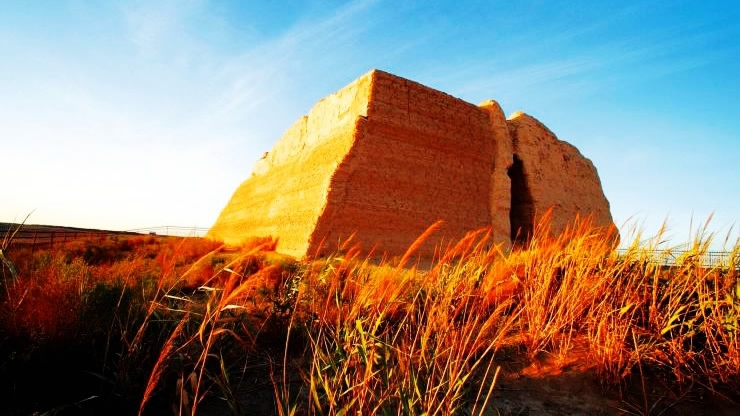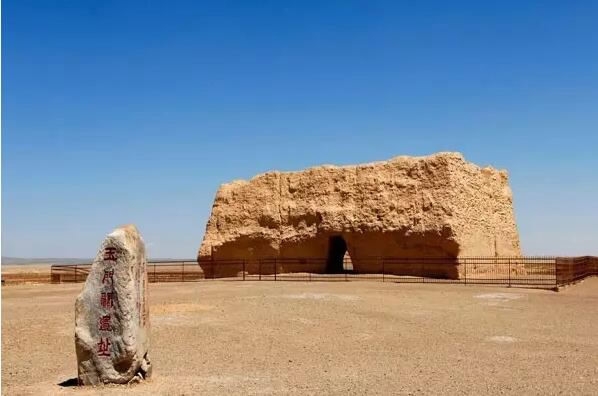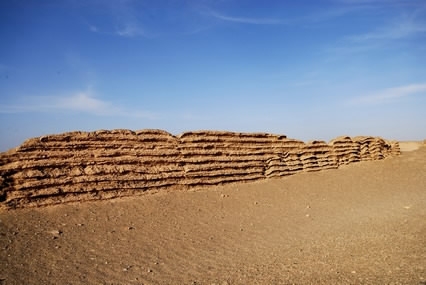
Culture
21:56, 06-Sep-2017
An ancient Chinese pass gets official protection
By CGTN's Zhang Ruijun

The newly-built visitor center and relics museum at Yumen Pass in northwest China are now open to the public.
Staff from over twenty Chinese-speaking media companies from sixteen countries and regions visited the museum on Tuesday, focusing on the protection being used at the world cultural heritage site.

Yumen Pass relics / Xinhua Photo
Yumen Pass relics / Xinhua Photo
He Guowen, the director of the cultural relic management institution of Yumen Pass at Dunhuang, told the reporter from Chinanews.com that they had recently implemented the monitoring and warning systems and reinforcements used at the Great Wall’s beacon towers at the ancient pass.
He added, the reinforcements the authority uses to protect the Great Wall and its beacon towers are fences, as well as hundreds of boundary pillars and markers.
"Man made destruction has stopped thanks to these years of protection, and now the greatest threat to the earth-built sites is currently natural weathering," he noted.

The Great Wall among Han Dynasty relics / People.com Photo
The Great Wall among Han Dynasty relics / People.com Photo
The local management hardens and reinforces the surface of the Yumen Pass Great Wall with chemicals to protect against weathering, and the monitoring system installed in the sites prevents tourists and explorers from climbing on the ruins.
Since Yumen Pass was added to the World Cultural Heritage List on June 2014, the authority has raised enough funds to implement projects such as renovations to the Yumen Pass visitor center, the interior decoration of the site, and museum exhibitions.
The pass was fortified by Emperor Wudi (156–87 BC) of the Western Han Dynasty (206 BC – 24 AD) and used as the gateway to the western regions on the ancient Silk Road.
This ancient site, also known as Little Square Plate City, is to the northwest of Dunhuang City in Gansu Province, where a large number of Han Dynasty wooden tablets and other antiques were unearthed.

Yumen Pass/ People.com Photo
Yumen Pass/ People.com Photo
The bleak and barren pass inspired many poets, including Wang Zhihuan of the Tang Dynasty (618–907 AD), who wrote the poem "Liangzhou Song" (Out of the Great Wall):
The Yellow River fades way up into white clouds
A speck of a lone town amidst soaring peaks
The Qiang flute needs not blame the willows
For the spring breeze doesn’t cross Yumen Pass
(translated by Ren Zhiji and Yu Zheng)
(top image credit: China Scenic)
1914km

SITEMAP
Copyright © 2018 CGTN. Beijing ICP prepared NO.16065310-3
Copyright © 2018 CGTN. Beijing ICP prepared NO.16065310-3